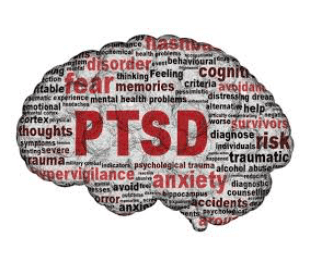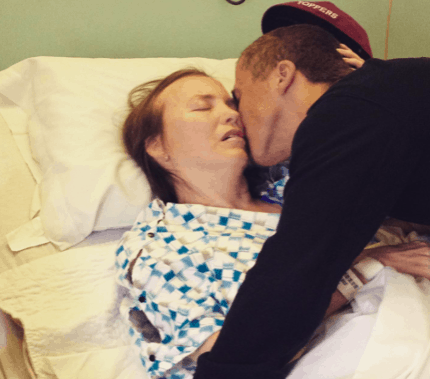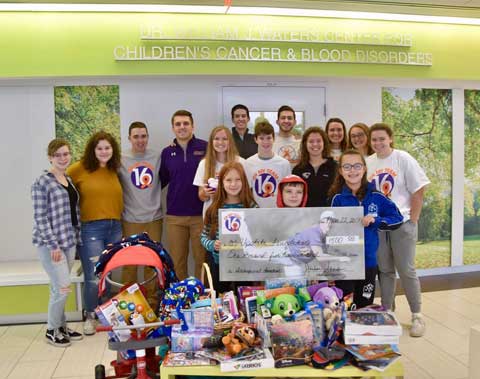When you hear the abbreviation PTSD, you often think war veterans, first responders or other people who have faced traumatic experiences in their lifetime. However, there are several groups of people whom would not come to mind when thinking about post-traumatic stress disorder: cancer survivors, their parents, and their siblings.
To understand the full extent of the effect that post-traumatic stress disorder (PTSD) can have on a family, it is important to understand exactly what post-traumatic stress disorder is. PTSD is characterized as a disorder that develops after a person faces a life-threatening or near-death experience in which they had little control over. These experiences often lead people to feel scared and helpless. Symptoms of post-traumatic stress disorder are persistent and unwanted thoughts regarding the experience and can include but are not limited to: nightmares, anxiety, avoiding people or places that remind them of the experience and feeling emotionless. If any of these symptoms last more than one month and begins to interfere with day to day functioning, a doctor may diagnose a patient with PTSD.
Several studies have found that 13-24 percent of childhood cancer survivors have symptoms of post-traumatic stress disorder or are diagnosed with PTSD. It is the second highest cause of PTSD among children according to the diagram above that illustrates findings from the Children’s Hospital of Philadelphia. This means that more than 1 in 5 childhood cancer survivors are fearful that their lives are still in danger and can remain fearful for as long as ten years after they finish treatment. Cancer survivors with PTSD can become extremely cautious and wary of any kind of physical symptom that is out of the norm, or could become avoidant of healthcare providers and facilities because they are negative reminders of their experiences. At follow up visits with children’s healthcare team, it is important that questions about their mental health are asked and treated, if necessary. By talking about the long-term consequences and effects of surviving cancer, health care providers can help patients alleviate the stress of cancer-related distress.
When a child is diagnosed with cancer, it changes the entire family’s lives and can negatively impact the mental health of parents, as well as siblings. Nearly 40% of mother and 33% of fathers experience symptoms of post-traumatic stress disorder after their child has had cancer. About 1 in 5 siblings of a cancer survivor also suffer from PTSD. One study recommended that educational information is provided to families of children with cancer. It was also recommended parents and caregivers are made aware of the fact that cancer can greatly impact healthy siblings within the family. Tips and aid for parents would be helpful in identifying siblings experiencing cancer-related traumatic stress symptoms.
On My Team16 works hard to provide comfort and alleviate stress for families with a child diagnosed with cancer. OMT16 hopes to bring families together and show that they are not alone in their fight. Families of a child diagnosed with cancer can hopefully find some solace in knowing that they have many people on their side working to lessen the stress in their lives. We are hoping that our impact not only reaches the children battling cancer, but their families as well so that it is not a cause for PTSD, but rather an obstacle that will can and will be overcome.
It is important to treat and diagnose PTSD in cancer survivors and their families early on and have treatment options available well past remission. A great resource for families can be found at https://www.aftertheinjury.org/sites/ati/files/afterthehospitalhelpingmychildcope.pdf or https://www.chop.edu/health-resources/dealing-challenges-childhood-cancer-and-treatment from the Children’s Hospital for Philadelphia.






I’m cancer free for 3.5 years and there are days that I can’t stop thinking about it and the tears just stream down😢 I know I need to focus on being alive but wth it’s Alain my head🤯